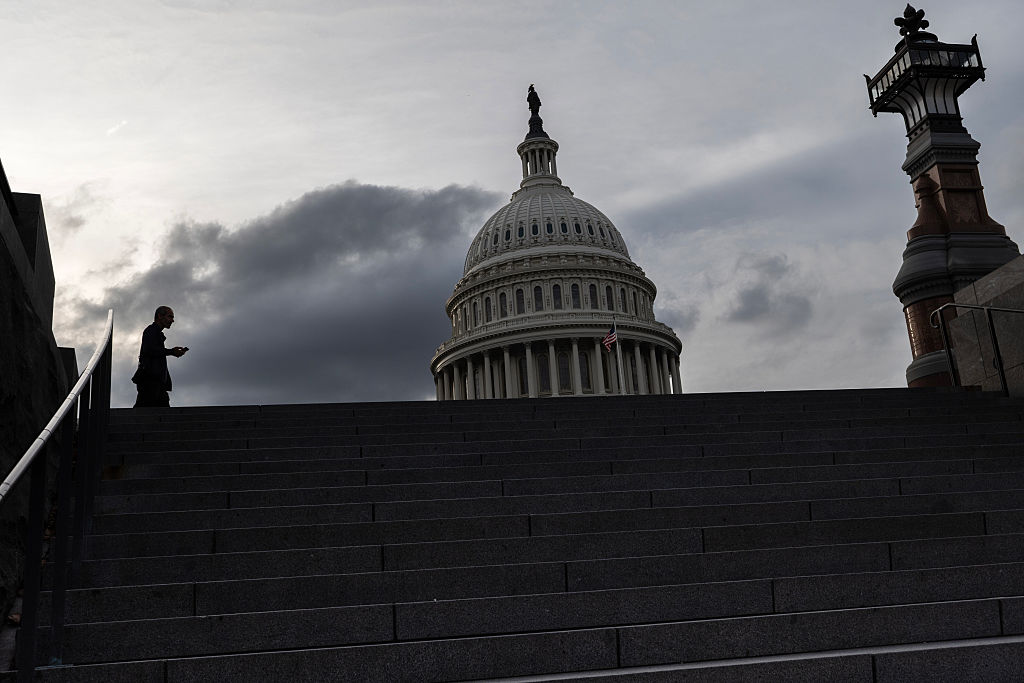Military personnel and their families are increasingly relying on food pantries as a prolonged government shutdown causes uncertainty for their household finances, even after President Donald Trump announced he would find funds to pay troops this month.
[time-brightcove not-tgx=”true”]
Advocates say that military households are particularly hard hit during shutdowns because many military spouses work for the federal government, and so both breadwinners can be left without a paycheck. Military spouses also face high levels of unemployment due to the frequent relocation required by the job.
Service members are due to be paid on Oct. 15, but even with Trump’s announcement, many are seeking help.
Read More: The Longest Government Shutdowns in U.S. History—and Where This One Ranks
Monica Bassett, founder and CEO of Stronghold Food Pantry, a food pantry for military members and their families, says that there has been an “unprecedented increase in need since the shutdown began,” noting a 300% increase in people seeking help at its brick-and-mortar location in Fort Leavenworth, Kansas.
She describes the sharp increase in people seeking help as “humbling and heartbreaking to witness.”
The food pantry’s national delivery service received 410 new applications for support in just 10 days, an increase Bassett says surpasses their usual total from an entire quarter.
“That’s nearly a 9x increase in our application rate, and it reflects both the urgent need families are facing during the government shutdown and the trust they place in us to stand in the gap with dignity and compassion,” Bassett says.
The Armed Services YMCA (ASYMCA), a nonprofit that supports armed service members and their families, recorded a 30% increase in demand for food across its 22 locations, and a spike of 34% at its Killeen, Texas, location on Oct. 2, the day after the shutdown began.
“We do this day in and day out, but I would be lying if I didn’t say I have concerns about the financial impact on nonprofits to fill this need,” says Dorene Ocamb, of the ASYMCA. “This is going to cost us $60,000 more per week to try to—emphasis on trying to—meet the demand. Right now, we can meet that need, but I worry about sustainability.”
Ocamb notes that during her visits to the food pantries since the shutdown, she has seen a change in demographics, too. Usually, their clientele is primarily families. Since the shutdown, though, “all bets were off,” says Ocamb.
“Almost two-thirds of the people requesting services were brand new, and a lot of single soldiers were showing up because their command told them to,” she said.
President Trump announced on Saturday that he would direct Secretary of Defense Pete Hegseth to “use all available funds to get our Troops PAID” by October 15, their regular pay day.
Trump has blamed “radical” Democrats for the uncertainty over military pay, even as Republican lawmakers rejected the idea of voting on a standalone bill to release the salaries in an attempt to pressure Democrats to cave on subsidies and end the shutdown.
The Trump Administration will reportedly distribute unused funds from the Pentagon’s 2024 research and development budget to pay the military salaries on Oct. 15, according to the Associated Press.
But Trump’s announcement has not calmed nerves.
“The announcement that President Trump authorized pay for October 15th is good news in the short term, but the details are still unclear: when payments will reach bank accounts, how long it will last, etc,” advocate, military family member, and founder of Military Families for Ethical Leadership Elizabeth Jamison told TIME. “That lack of clarity just adds to the anxiety for families already on the edge.”
Jamison notes that an already elevated high unemployment rate for military spouses means that many of these families rely on one paycheck, and that is now “in jeopardy.” Those who do have a job are often federal employees, also concerned as the Trump Administration begins to make good on its promise to roll out mass layoffs during the shutdown.
“Many military spouses are federal employees or contractors and have been on an employment rollercoaster all year with the federal HR upheaval, and now find themselves facing furloughs or [layoffs], if they are fortunate enough to still be employed,” she says. “So there is dual instability that is causing incredible turmoil for these families and public servants who just want to give back to their country.”
Jamison argues that since the Department of Defense’s budget is “massive,” the level of food insecurity among military members is already “unacceptable.” This only exacerbates that need.
“It shouldn’t be the case that nonprofits and community organizations have to be the safety net for those in uniform,” she continues. “Congress can and should pass a stand-alone bill immediately to resolve the military pay issue and remove this unnecessary stress and uncertainty for military families, who already shoulder the unique demands of military life.”
On Thursday, a military spouse called into C-SPAN to assail House Speaker Mike Johnson about the potential of a missed paycheck.
“If we see a lapse in pay come the 15th, my children do not get to get the medication that’s needed for them to live their life, because we live paycheck to paycheck,” the caller told Johnson.
Johnson responded that “the Democrats are the ones that are preventing you from getting a check.”

